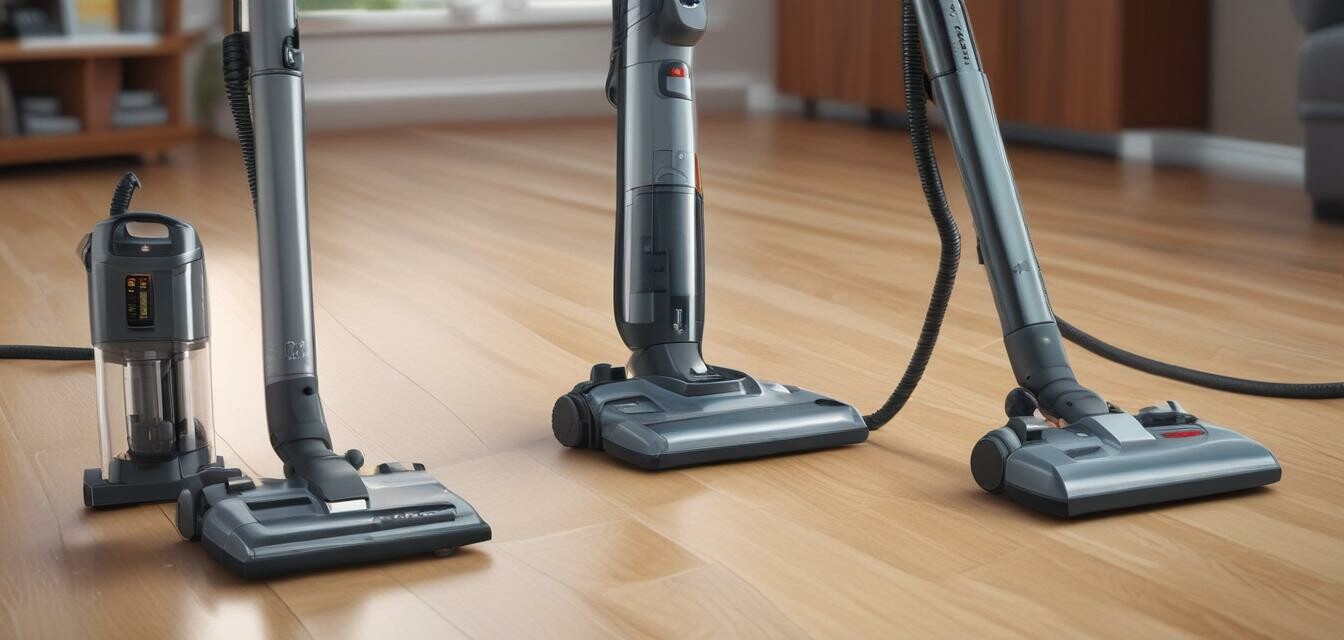
This article was generated using AI and is based on real customer reviews from the Amazon platform. It contains affiliate links, meaning we may earn a commission—at no extra cost to you. As Amazon Associates, we earn from qualifying purchases.
Allergy-Friendly Corded vs. Cordless Vacuums
Key Takeaways
- Corded vacuums generally provide stronger suction power and longer run time.
- Cordless vacuums offer greater convenience and portability.
- Both types can effectively feature HEPA filters for allergy management.
- Cordless may come with limited battery life, requiring charging and possible interruptions.
- Consider your cleaning needs, type of surfaces, and the presence of pets when choosing.
When it comes to keeping your home free from allergens, selecting the right vacuum is key. In this article, we’ll dive into the analysis of corded versus cordless vacuums, weighing their benefits and drawbacks to find out which suits your allergy management needs best.
Understanding Your Options
Allergy-friendly vacuums are designed with special features that help to trap allergens and improve indoor air quality. The two most common options are corded and cordless vacuums.
What are Corded Vacuums?
Corded vacuums are traditional floorcare machines that require a power outlet to operate. They typically offer more consistent suction power and a longer runtime since they draw power directly from the wall. Here’s a quick comparison of some key features:
| Feature | Corded Vacuums |
|---|---|
| Power Source | Electric Outlet |
| Run Time | Unlimited (as long as plugged in) |
| Suction Power | High |
| Weight | Varies (often heavier) |
What are Cordless Vacuums?
Cordless vacuums, on the other hand, provide the freedom to move around without being limited by a power cord. They run on rechargeable batteries, but battery life can vary depending on the model.
| Feature | Cordless Vacuums |
|---|---|
| Power Source | Rechargeable Battery |
| Run Time | Limited (usually 20-60 mins) |
| Suction Power | Moderate to High |
| Weight | Typically lighter |
Pros and Cons of Corded vs. Cordless Vacuums
Pros of Corded Vacuums
- Stronger suction power for deep cleaning.
- No need to recharge batteries.
- More durable for heavy-duty cleaning tasks.
- Better for large areas without the need for stopping.
Cons of Corded Vacuums
- Less mobility due to being plugged into a socket.
- The cord can get tangled or in the way during cleaning.
- Storage can be cumbersome in small homes.
Pros of Cordless Vacuums
- Easy to maneuver and use in tight spaces.
- Great for quick clean-ups around the house.
- Lightweight and often portable.
- No cord restrictions.
Cons of Cordless Vacuums
- Battery life can limit cleaning time.
- Some models may have lower suction power.
- Potential need for frequent recharging.
How to Choose the Right Vacuum for You
When deciding between corded and cordless vacuums, consider the following:
- House Size: Larger homes may benefit from the power and longevity of corded vacuums, while smaller homes can utilize the convenience of cordless versions.
- Type of Cleaning: If you frequently deal with pet hair or allergens, assess the suction power and HEPA filtration capabilities.
- Storage Space: Cordless vacuums are often easier to store due to their compact size.
- Budget: Prices can vary; consider what features matter most to you.
- User Feedback: Check user reviews to gauge real-world performance.
Highlighted Products
To give you a sense of premium options in both categories, here are some notable vacuums:
Cirrus VC248 Straight Suction Bagged Canister Vacuum Cleaner
Lightweight and powerful with a HEPA-type filtration system, ideal for allergy sufferers.
Learn MoreCordless Stick Vacuum Cleaner
55 minutes of runtime with a lightweight design, perfect for quick cleaning sessions.
Explore NowConclusion
In conclusion, the ultimate choice between corded and cordless vacuums depends on your lifestyle, cleaning habits, and specific needs. Both options have unique advantages, and by understanding these, you can make an informed decision tailored to effectively manage allergens in your home.
For more insights and information on allergen management in your home, consider checking out our guide on best practices for allergy control.

